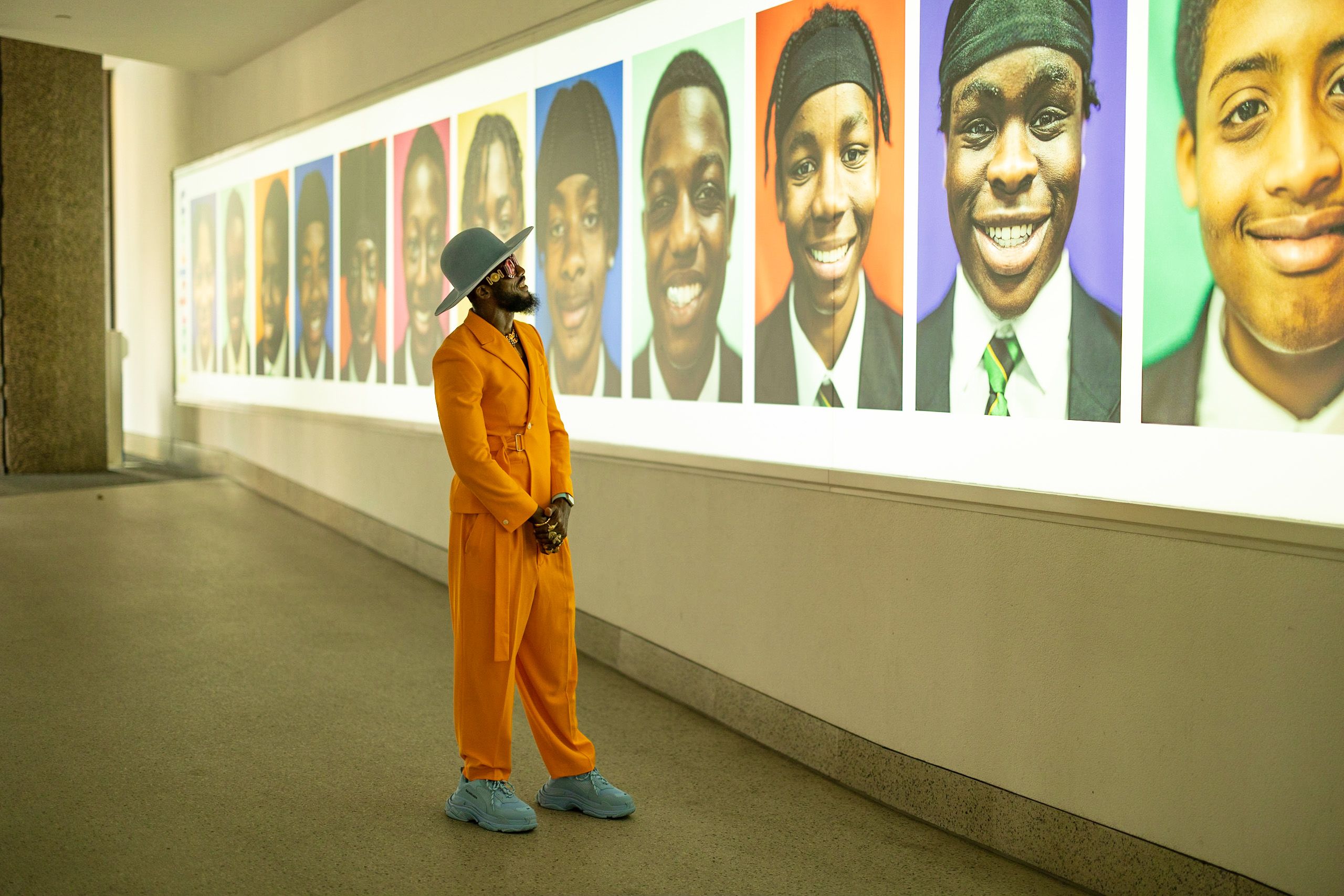Teach Inspire Create Conference: meet Kay Adekunle Rufai

- Written byKay Adekunle Rufai
- Published date 24 October 2023

As we approach our Teach Inspire Create Conference on 24 November, we spoke to keynote speaker Kay Adekunle Rufai, about how he challenges stereotypes through his artwork and the topics he will be speaking about at the event.
Kay is a British-born Nigerian photographer, poet, filmmaker, author, mental health researcher and founder of the internationally acclaimed S.M.I.L.E-ing Boys projects.
He is currently the first artist in residence for West Midlands Police, as part of Coventry City of Culture. His award-winning work explores themes of masculinity, mental health, identity and serious youth violence and has been widely exhibited at The Barbican, City Hall, Tower Bridge, the Royal Court and more, as well as featured on the Guardian, Channel 5 news, BBC 1XTRA and more.
Why do you think creative education is important for young people?
I believe creative education is important for young people because it empowers them through autonomous learning to explore simple and complex themes in such fun and evocative ways. It promotes out-of-the-box thinking as well as innovative problem solving. It also provides an equitable learning environment for different type of learning styles.
Congratulations on the success of your S.M.I.L.E-ing Boys Project so far. Please can you tell us more about this project and why it is important to you?
S.M.I.L.E-ing Boys CIC aims to address the mental health needs of black boys while challenging the negative portrayal of this demographic in the media through research-led 8-week creative arts workshops. The primary purpose of this project is to improve the mental health of Black boys aged 13-15 by providing them with tools to develop their emotional literacy, conflict resolution, regulating their emotions and self advocacy within the school environment to bring about change in the systems that disproportionately impact their mental health.
The resulting counter stereotypical images are used to challenge the one-dimensional narratives surrounding Black boys’ images in society. This mission is incredibly important to me because it humanises Black boys in a way that all children deserve to be and it provides a public health informed approach to addressing some of the issues impacting Black boys in the various systems: Education, Mental health services and Criminal justice, to name a few.
It is important because it empowers the black community with tools to support black boys in their holistic development into healthy children. It is also important because it creates safe spaces for Black boys to be educated on healthy masculinities, sexism, misogyny and misogynoir and conflict resolution in creative ways.
Your work covers a large variety of subject matters, engaging with such a diverse community of people. Why do you think this is important to explore and showcase these groups in your work?
It is important for me to showcase Black boys in my work due to the overwhelmingly disproportionate statistics that posit Black boys at a disadvantage in school exclusions, police stop and search data, police excessive use of force, Mental Health Detainment Act, which are all directly linked to the subconscious images upheld about them in people’s minds.
My mission is to, through the counter-stereotypical portraits created and exhibited worldwide of these Black boys, challenge individuals and systems in a bid to create a truly equitable world.
How does your work in mental health research inform and inspire your creative practice?
The research informs the design of the S.M.I.L.E-ing Boys methodology which alongside therapeutic co-design, empowers the participants, the families and the school on tools to improve the overall outcomes for the boys.
What will you be speaking about at the Teach Inspire Create Conference?
The Talk will use the 8-pillars of happiness methodology to explore, through an anti-racist lens, our relationship with stereotypes and how this shapes broader society culture. This talk aims to provide attendees with tangible tools to continue creating a more equitable education culture and society, using the portraits to explore and reflect on internalised biases and stereotypes to evoke self-reflection and empathy.
Tickets are limited so don’t forgot to book your ticket now to hear from Kay, as well as our other keynote speakers, Andria Zafirakou and Tina Ramdeen!